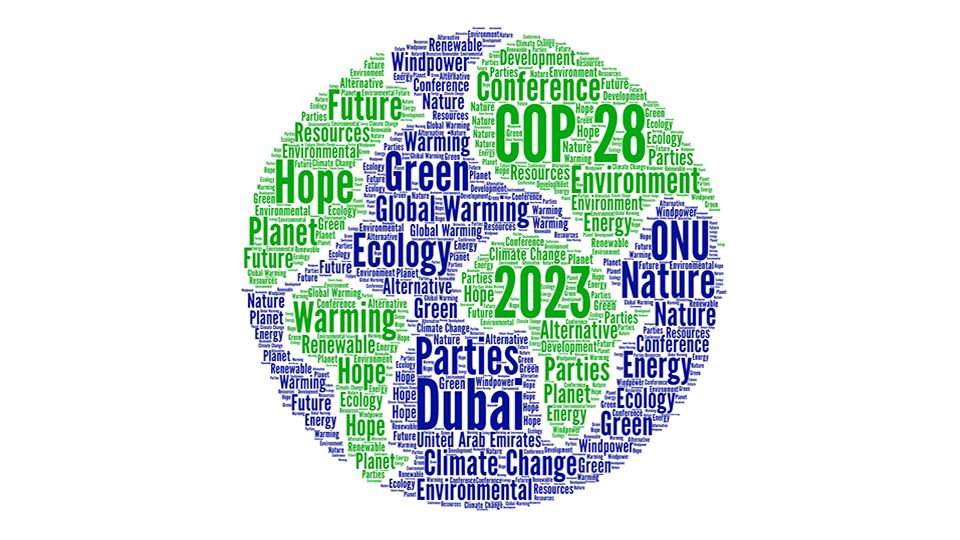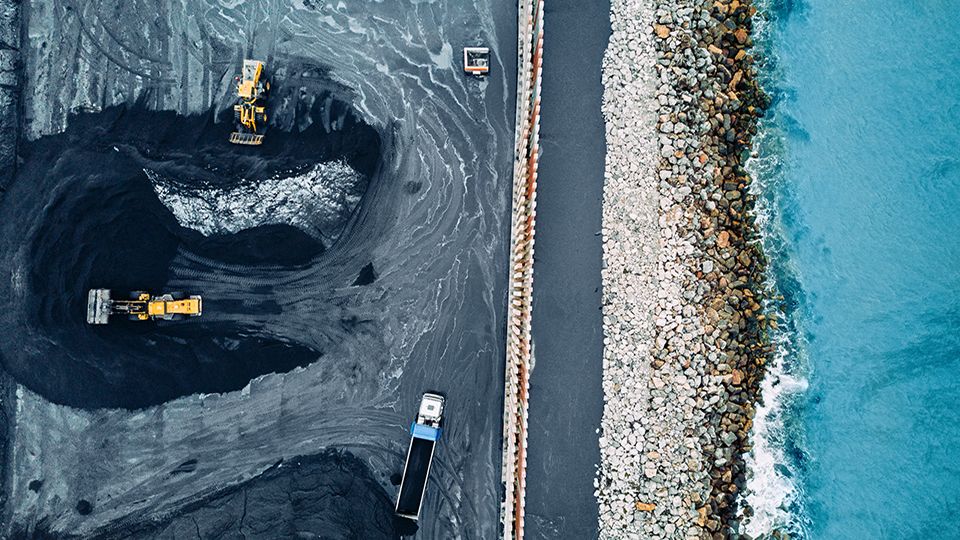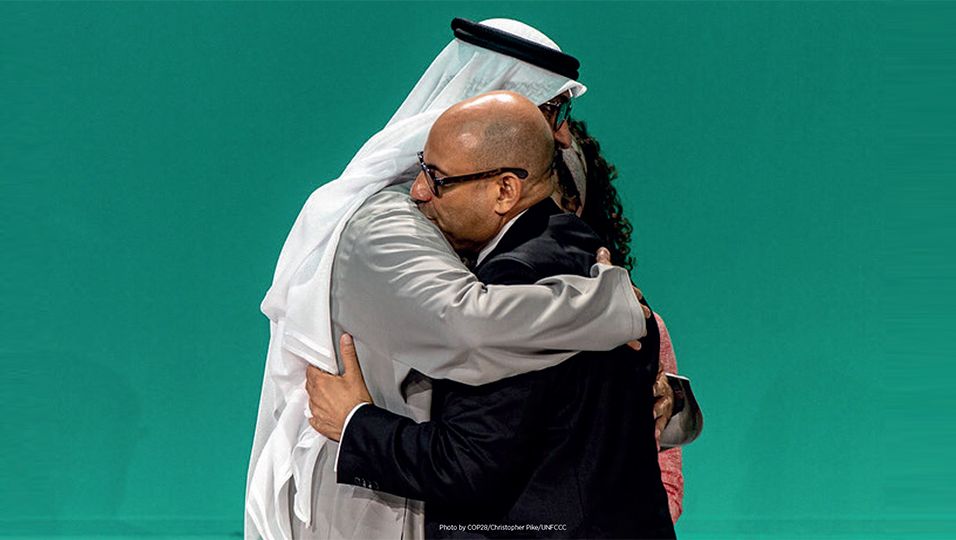Wealthy countries need to play a much bigger role in funnelling climate finance investment to vulnerable communities in the Global South, COP28 President-Delegate Dr Sultan Al Jaber has told world leaders, in a whistlestop tour ahead of the climate summit in the UAE in November.
The COP28 UN meeting to tackle climate change will take place from 30 November until 12 December 2023 in the United Arab Emirates (UAE).
Ahead of the global meeting, Jaber, whose appointment as President of the event has attracted fierce criticism given he is also chief executive of the Abu Dhabi National Oil Company (Adnoc), has been touring countries drumming up support for his climate finance plans.
On 24 June, he addressed the New Global Financing Pact Summit in Paris and welcomed progress to unlock climate finance while calling on delegates to go further.
The summit, led by President Macron and Barbados Prime Minister Mia Motley, was targeting global financial reform, and driving more financial resources towards climate action and supporting the most vulnerable communities.
Clean energy investment in low-income countries represents less than 2% of global investment in the sector, and less than 10% of the $120bn a year that is the baseline requirement, Jaber said at the summit.
“We need to bring everyone to the table across the financial community and use every tool in the shed,” he stated. “We need to take a comprehensive and a holistic approach to a global challenge, view climate action as an opportunity, not as a burden, and act together with unity of purpose.”
The previous week on 20 June, Jaber met with H.E. William Ruto, President of the Republic of Kenya, along with energy ministers and leaders from other African nations, at the Africa Energy Forum in Nairobi, where he emphasised the importance of making climate finance more available, accessible, and affordable to enable countries in the continent to achieve their clean energy potential.
“We need to be candid about the issues and determined to fix them,” Jaber stated.
Green agenda fight
Jaber’s visit to Kenya followed the 10-day ‘agenda fight’ that dominated the UNFCCC Bonn climate talks on 15 June, which brought to the fore the glaring lack of finance that is essential for climate progress.
Decades of mistrust on the delivery of finance, for instance with $100bn pledged at COP26 still unfulfilled, forced open a conversation on the need for actual money on the table for poorer countries to implement their climate action plans to phase out fossil fuels.
Proponents argue this is needed to make a just and equitable transition towards renewables, including setting a new collective quantified goal on climate finance in 2024.
Harjeet Singh, head of global political strategy for the Climate Action Network International, said: “The Bonn Climate Conference laid bare the glaring hypocrisy of wealthy nations, showcasing a remarkable indifference to the struggles of developing countries.
“Let’s be clear: without honouring their financial pledges—directly tied to their historical role in driving the climate crisis—these affluent nations lack the moral authority to exert pressure on poorer countries.
“Developing nations face the monumental task of eradicating poverty, fostering green development, and coping with escalating climate disasters. They deserve unwavering support, not undue pressure.”
A month before the chaos at Bonn, the ]COP28 climate summit incoming president set out an agenda to “supercharge” global climate finance and finally reach the promised $100bn to help poorer countries adapt to climate change, a goal that has eluded his predecessors.
On 2 May, Jaber told the Petersberg Climate Dialogue in Berlin that “mobilising” private finance and the reform of international finance institutions was a priority.
He also remained focused on the development of technologies to reduce emissions, rather than to phase out production of fossil fuels.









